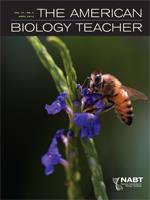Our society is currently having serious debates about sources of energy and global climate change. But do students (and the public) have the requisite knowledge to engage these issues as informed citizenry? The learning-progression research summarized here indicates that only 10% of high school students typically have a level of understanding commensurate with that called for in the Next Generation Science Standards. The learning-progression research shows how most students fall short of being able to trace matter and energy through carbon-transforming processes such as photosynthesis, respiration, and combustion that are at the center of analyses of energy use and global climate change. We discuss the more typical types of understanding that students develop and their implications for teaching.
How to translate text using browser tools
1 April 2015
Learning Progressions & Climate Change
Joyce M. Parker,
Elizabeth X. de Los Santos,
Charles W. Anderson
ACCESS THE FULL ARTICLE
It is not available for individual sale.
This article is only available to subscribers.
It is not available for individual sale.
It is not available for individual sale.

The American Biology Teacher
Vol. 77 • No. 4
April 2015
Vol. 77 • No. 4
April 2015
carbon cycle
combustion
global climate change
learning progressions
photosynthesis
respiration
Tracing matter and energy




